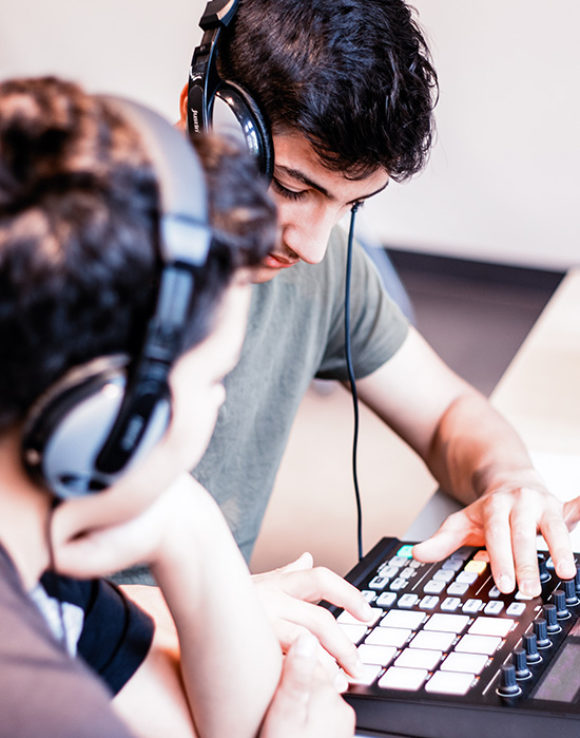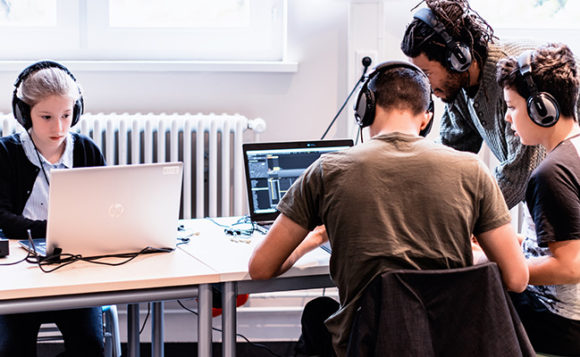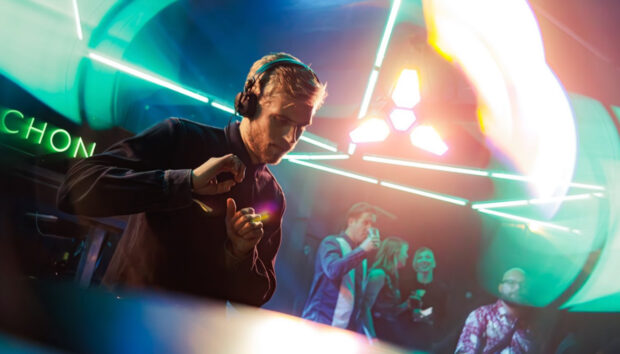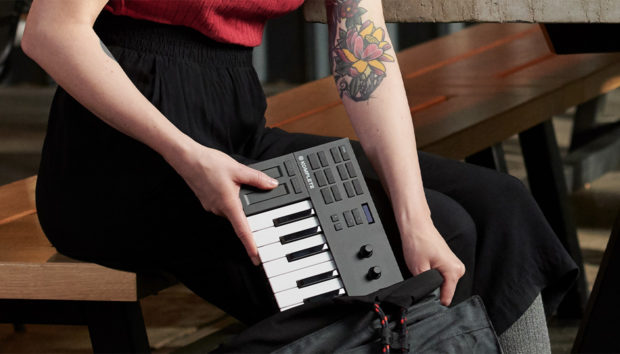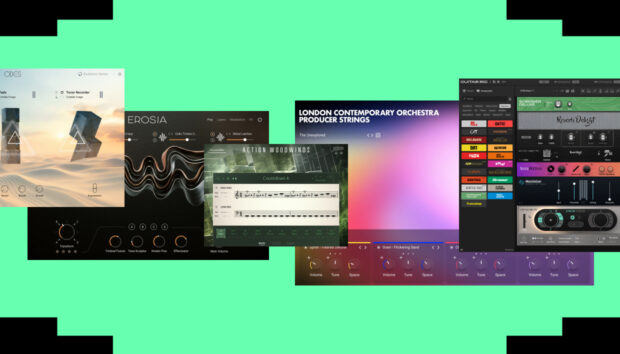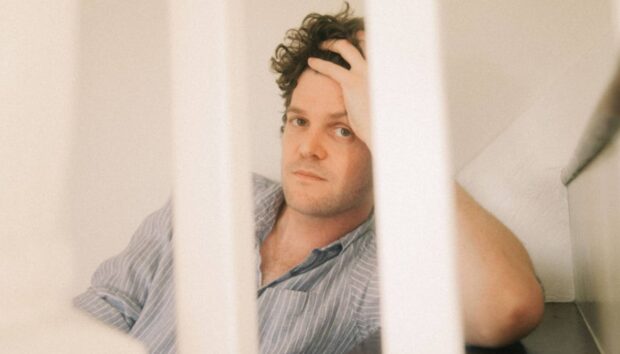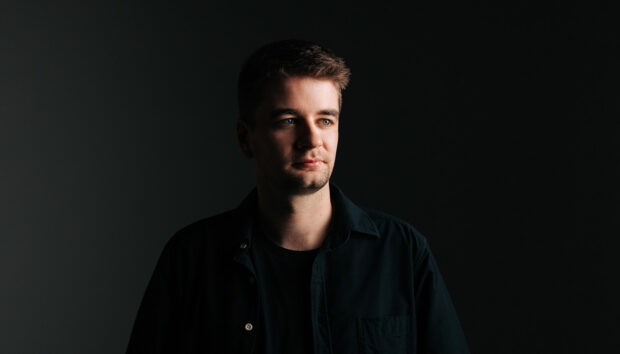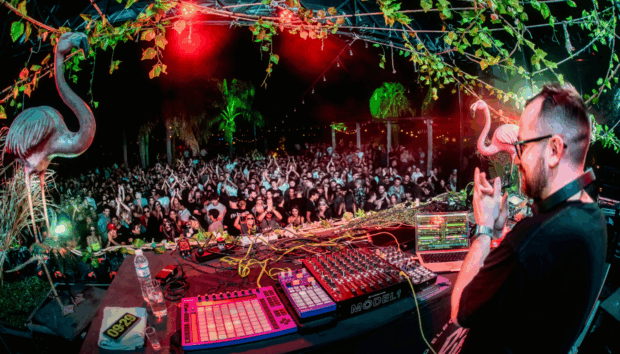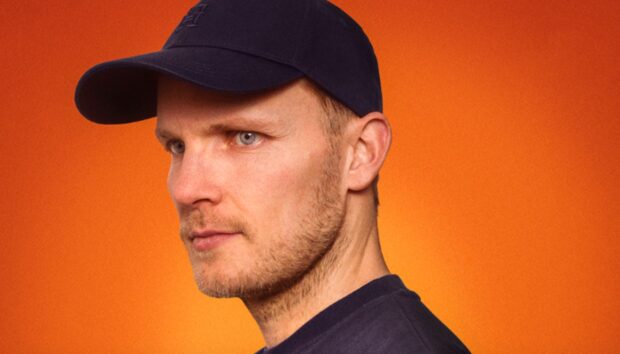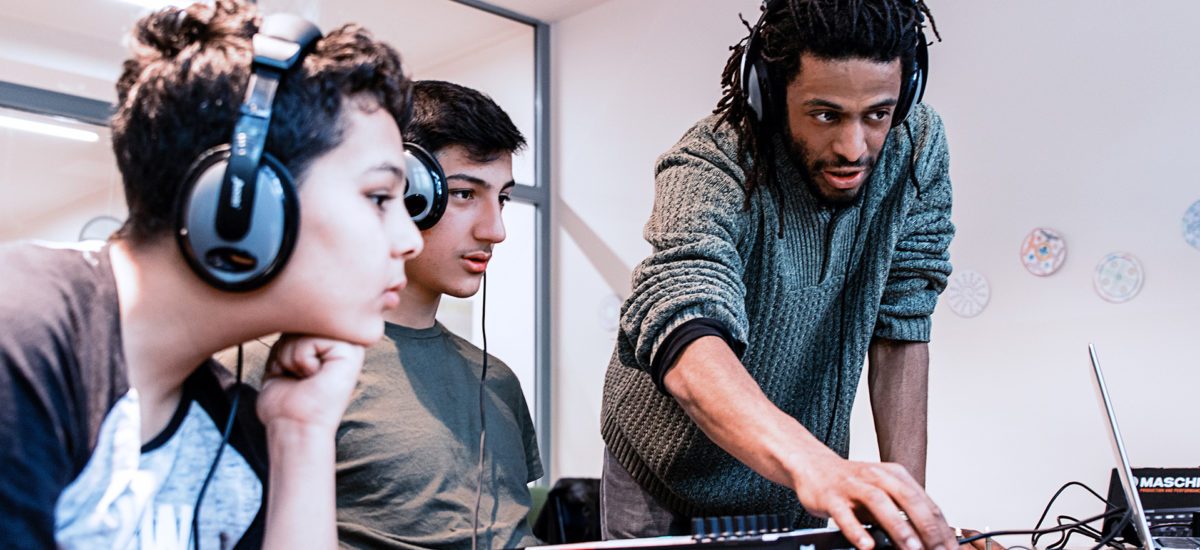
Located between Berlin’s Gropiusstadt and the district of Rudow is the community school Campus Efeuweg. Working to improve opportunities for the children living in disadvantaged neighborhoods, the school provides programs and workshops that facilitate a multitude of differing learning options and disciplines. One such class producing astounding results among the mixed students is the MASCHINE beat-making workshop.
Taking place twice a week, the newly established MASCHINE class is part of an ongoing exchange between school coordinator Erkan Karakaya and the education department at Native Instruments. The idea to establish the course came from, YouthVille in Detroit, all the way across the Atlantic. Founded by the Detroit Youth Foundation, YouthVille, a now-closed youth centre, provided after-school activities and extracurricular workshops, one of which happened to be a music production class taught by legendary Detroit producer and DJ Mike Huckaby.
Seeking for inspiration
After watching the Real Scenes: Detroit documentary by Resident Advisor, in which legendary DJ Mike Huckaby is shown introducing his music production workshop at YouthVille Detroit, Sebastian Schmidt — who was teaching at Campus Efeuweg at the time — was immediately hooked on the idea of doing something similar in Berlin.
“I just wrote him [Mike Huckaby] a message on Facebook and he promptly replied”, says Schmidt. Huckaby was already a MASCHINE expert, with an abundance of experience teaching, and was immediately keen to join the project. Whenever he found time during his trips to Berlin for DJing or otherwise, Huckaby joined the workshops as a guest-teacher, even going as far to create a custom sample-kit for the class, using beatboxing sounds from one of the students.
Another member of the teaching staff is local musician Jamal Kamano. Aside from rapping, producing, and being an active member of Berlin’s dub and reggae scene, Jamal is also a product specialist for Native Instruments, having worked at numerous MASCHINE workshops in youth centres and prisons throughout the city. With Schmidt moving on to different projects in the city, Kamano eventually took over the role of leading the MASCHINE classes, teaching in tandem with Huckaby. “Mike is really great with the kids, he always keeps his calm and patience”.
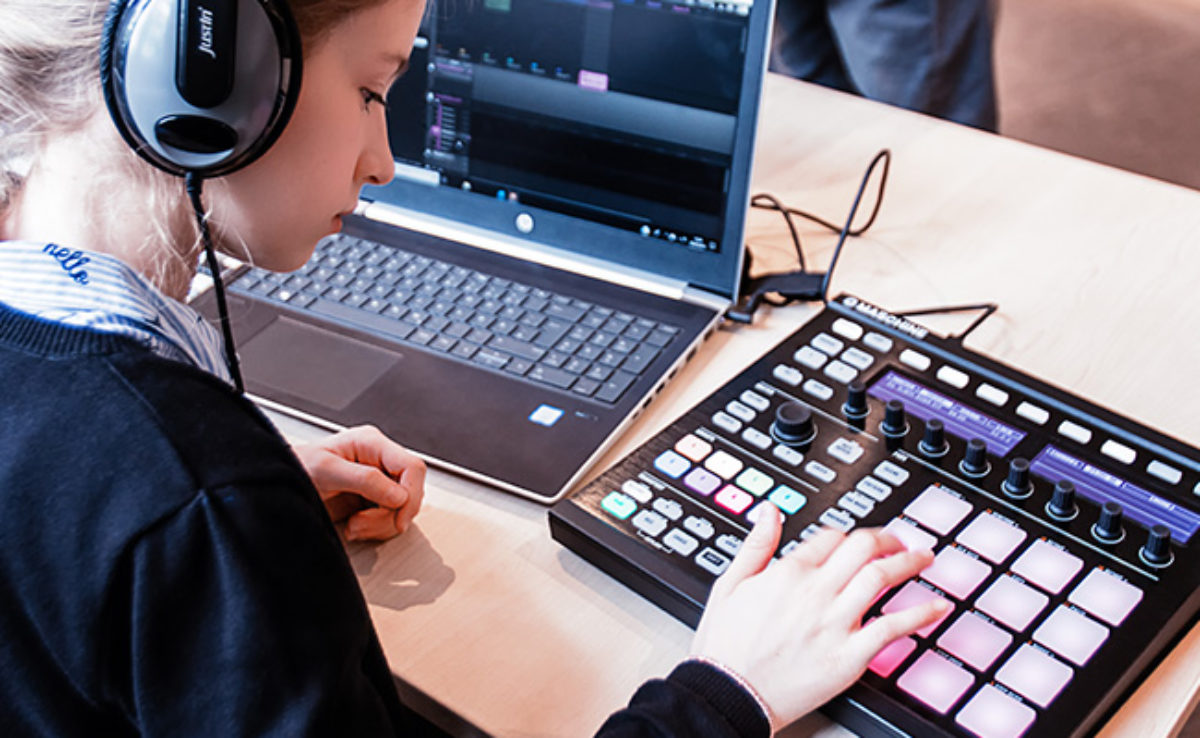
Talking to Jamal, his excitement and enthusiasm for this project immediately surface to the top. Similarities between the Berlin sessions and its Detroit model are deliberate. Jamal is convinced that the positive effect of these projects are reflected in students’ behaviour, which in turn has a strong effect on other areas of their lives. “Often those children that show difficulties in behaviour during other classes, show up on time, are friendly, and most importantly are motivated at our workshop”.
Being punctual, organized, and co-operative were important issues for Mike Huckaby, too. “He can be very strict and demanding, you have to follow certain rules, otherwise it doesn’t work out”, Jamal points out. “It’s just important for their self-esteem, especially kids who are a bit quieter, shy or have been bullied before. It’s a great way to show them that they can create something by themselves and be proud of it”.
Tomorrow’s MASCHINE talents
Along with having a positive impact on the kids’ behaviour, Jamal has also noticed a marked improvement and development in the students’ production skills. On some occasions, he’s even considered future collaborations with some of the budding producers, thinking in certain instances, “Wow, I’d love to rap on this one”. Whether they have a background in music or not, the talent progression of all the students always tends to develop at the same rate. Some even go on to take up formal music training, learning how to play melodies, chords or instruments themselves.
One of our students Anastasia, for instance, comes from a musical background and had piano training before she took part in the beat making workshop,” says Jamal. “By giving her a tool like Maschine she can fully live out her creativity on a new level, and can add her own rhythms to compositions and rearrange certain parts of the song”.
The song in the SoundCloud link below was created by eleven-year-old Anastasia (Ana.STA.sia) during the MASCHINE beat-making classes.
14-year-old Hamoudi, on the other hand, didn’t have any formal instrument training prior to the workshop but went on to evolve his musical and production skills over the course’s duration. And what of the students’ favorite genres at the moment? “Hip hop, of course” Jamal replies with a smile on his face. “But dubstep and techno are also popular”, he adds.
“It’s important to explore the Maschine library with a student, to understand what’s actually there. Then, the next thing you do is combine the talents of the students with Machine,” adds Huckaby. The Detroit producer has been kind enough to provide the MASCHINE kits used in the class for a free download, which you can access here. “Working with the students was an extraordinary gift. What language barriers couldn’t communicate, all became understandable through making music through Maschine.”
Future prospects
After moving on from Campus Efeuweg, Sebastian Schmidt went on to set up a new MASCHINE production workshop at a new school in the city. Jamal is also teaching elsewhere beyond the Campus, with several workshops throughout Berlin. Both teachers strongly support the notion that programs such as this offer greater enrichment for the development of students, that conventional programs can offer. Currently, Sebastian and Jamal are working out a framework they can pitch to governmental institutions in order to drive the idea forward and acquire further funding.
Photo credits: Yvonne Hartmann








